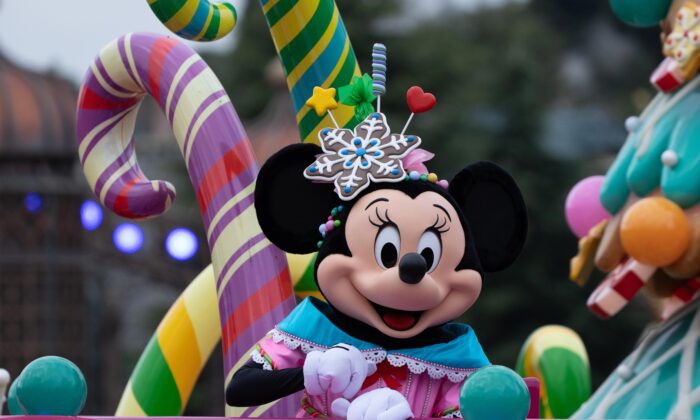
News Analysis
Disney is in the midst of an identity-crises that could shape the future of the company and the worldwide media landscape for decades to come.
Bob Chapek, the CEO of Walt Disney Co., recently announced that it is “aggressively” looking to enter the sports gambling business.
In the company’s fourth quarter earnings call on Nov. 1o, Chapek said, “as we follow the consumer, we necessarily have to seriously consider getting into gambling in bigger way.”
Chapek believes ESPN would be a “perfect platform” for this new venture.
“We have done substantial research in terms of the impact to, not only the ESPN brand, but the Disney brand in terms of consumers’ changing perceptions of the acceptability of gambling. And what we’re finding is that there is a very significant insulation. Gambling does not have the [baggage] now that it had, say, 10 or 20 years ago.”
Disney’s acquisition of 21st Century Fox brought with it franchises like “Predator,” “ Simpsons” and “Deadpool,” which carry associations and connotations that depart dramatically from the Disney brand.
As the media giant and alleged monopoly grows horizontally, it becomes harder to maintain brand identity. It’s hard to measure to what extent Disney’s branding and brand association has carried them forward from the days of Walt Disney himself to be the aggressive, dominant company that it is today, but academics and accountants agree: brands are valuable. Apple’s brand, for example, is worth $260 billion dollars.
Stephen A. Greyser and Mats Urde in Harvard Business Review speak to the power of brand identity to create a competitive advantage.
“A clear, unified corporate identity can be critical to competitive strategy, as firms like Apple, Philips, and Unilever understand. It serves as a north star, providing direction and purpose. It can also enhance the image of individual products, help firms recruit and retain employees, and provide protection against reputational damage in times of trouble.”
Disney, up until fairly recently, had one of the clearest brands in entertainment. Chapek is willing to bet that gambling won’t affect that brand.
“We have some concerns as a company about our ability to get in it without having a brand withdrawal,” he said. “But I can tell you that given all the research that we’ve done recently that that is not the case. It actually strengthens the brand of ESPN when you have a betting component, and it has no impact on the Disney brand.”
“refore, to go after that demographic opportunity plus the, of course, not insignificant revenue implications, that is something that we’re keenly interested in and are pursuing aggressively.”
A recognizable brand takes a long time to build and rebuilding a damaged one is a difficult process.
United Airlines ruined its brand by dragging Kentucky doctor David Dao from an airplane, dislodging his teeth and giving him a concussion. Taco Bell’s use of a Chihuahua mascot in its commercials associated their food with dog meat in thousands of customers’ minds, the greatest mistake the company’s ever made, according to at least one executive. Seaworld no longer seems so family friendly after rampant allegations of mistreatment of animals and staff. And Chipotle’s salmonella outbreaks have tainted the assumptions of the consumer almost as much as it tainted its fare.
Orange County Register reported that Disney owned websites that contained “gambling content” were blocked on Disney World WIFI only a few years ago. Could this shift in strategy be stemming from Disney’s underwhelming financial performance in the last quarter and the subsequent drop in stock price? What may be even more likely is that both phenomena stem from the same cause, a deeper corporate culture misalignment. And dramatic shifts in corporate strategy that don’t align with brand identity should never be taken lightly.
Chapek also spoke to the company’s plans to enter the Metaverse and the NFT space, which doesn’t on face contradict Disney’s family friendly identity quite as starkly as gambling.
Disney’s research may be a solid, accurate prediction. ir brand may be undamaged by ESPN’s venture into gambling. But, there is a risk that stories of gambling addicts potentially losing their life savings to a company known for creating “the happiest place on earth” and the subtle internal changes to the corporate culture that come with a dramatic shift in revenue streams such as this could change the company in a way that makes it less competitive, less focused, and less in touch with its historic roots.
Pezou : Disney ‘Aggressively Pursuing’ Gambling in the Clubhouse